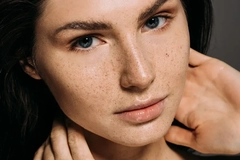Webinar Preview: “Skinification” gives rise to new microbiome solutions and fermented molecules
.jpg)
16 Jun 2023 --- Ahead of Personal Care Insights’ upcoming webinar, “Multifunctional makeup: How can hybrid cosmetics elevate brands to skinification stardom,” we share a peek into global market research on the trend of merging skin care with cosmetics. We also explore new creative molecule innovations and solutions addressing the turn to health and microbiome-boosting personal care products.
On June 20, 4 pm CET, the webinar will go live with Dr. Casey Lippmeier, SVP of Innovation at Conagen, and Dr. Kristin Neumann, CEO at MyMicrobiome, will lead the roundtable discussion and share their expert insights.
Cosmetics evolve within “skinification” trend
With new innovations increasing the efficacy and efficiency of beauty products, the refinement of multifunctional cosmetics is increasingly blurring the line between skin care and makeup – ushering in the era of “skinification.”
As the trend develops, we seek to unravel the hero ingredients behind such products, how they are used and what specific market trends they tap into.
Such “hybrid cosmetics” that boast decreased costs and clean essential formulations are notably one of the most “significant” trends induced by the pandemic. Personal care and cosmetics raw materials supplier Active Concepts previously highlighted that younger generations are more conscious about what they buy than previous generations.
Market researcher reveals global data
Innova Market Insights shares that multifunctional beauty products have had an average annual growth rate of 4% in the past five years.
The top product categories of these launches include Facial Foundations or Illuminators and Lipsticks (31%), followed by Face Concealers (14%), Eye Shadows (5%) and Lip Gloss/Balms (4%). Neumann from MyMicrobiome will be exploring the relationship between skinification, health and the microbiome.
Neumann from MyMicrobiome will be exploring the relationship between skinification, health and the microbiome.
Of these multifunctional product launches, long-lasting claims have been in the top position, followed by moisturizing and hydrating.
Fast-growing beauty subcategories tracked with multifunctional claims include Face Concealers at 64%, Lipstick at 23%, Facial Foundations or Illuminators at 14%, Face Blush at 9% and Facial Powders at 5% (Global, CAGR 2017/Q4 – 2018/Q3 vs. 2021/Q4 – 2022/Q3).
Also, the top ingredient for multifunctional products has been Titanium Dioxide (76%) followed by Hydrogen (53%), Other Oils (49%), Glycerol and Aluminum Hydroxide (42%).
Fast-growing positionings in beauty launches tracked with multifunctional claims include Alcohol-Free at 172%, Silicon-Free at 147%, Anti-Pollution at 104%, Normal Skin at 95% and Non-Comedogenic at 84% (Global, CAGR 2017/Q4 – 2018/Q3 vs. 2021/Q4 – 2022/Q3).
Does makeup need to boost health?
In the webinar, Neumann from MyMicrobiome, a biotechnology and microbiome-friendly certification company, will be exploring the relationship between skinification, health and the microbiome.
Neuman will delve into consumer demographics of the skinification trend while highlighting that consumers have “shifted from an outward to an inward” approach to personal care. She will also spotlight changes in formulating makeup and personal care products better aligned with a minimalist approach.
Highlighting the role of the skin’s microbiome and its importance, Neuman will provide a scientific overview of the skin and explain how Western lifestyles pose a challenge to microbiome health.
Adding to the range of relevant topics, Neuman will also share insights into developments in the cosmetics market and regulations, focusing on the microbiome-friendly certification for makeup and personal care.
This year, industry innovators are increasingly shifting toward sustainability while tapping into health solutions and art-inspired expression, as observed at this year’s In-Cosmetics Global tradeshow. Lippmeier will be delving into sustainable molecules produced by precision fermentation.
Lippmeier will be delving into sustainable molecules produced by precision fermentation.
Seeking new and innovative molecules
Fermentation technology – another key focus of the webinar – has been advancing over this past year as a viable method for producing microbiome-enhancing and environmentally sustainable cosmetic ingredients, which help industry shift away from more intensive sourcing methods.
Recent advancements in this field that have been covered on Personal Care Insights include new skin care applications derived from fermented tea leaves from Thailand, berries and fruits naturally processed in kombucha, and the fermented honey of a rare and ancient bee species.
Lippmeier from Conagen, a biotechnology and manufacturing company, will be delving into sustainable molecules produced by precision fermentation.
In layman’s terms, he will explain how new molecules are created through precision fermentation, which can be used for food, nutrition and personal care. He will also offer an exclusive look into their benefits and uses.
While promoting the industry shift away from petrochemical processes, Lippmeier markets its novel molecules as alternatives to compounds “difficult to source,” such as its fermented molecules designed to be stronger than retinoic acid without the same side effects.
Lippmeier will also showcase molecules that can be used as preservatives and as a depigmenting agent for the skin, alongside a natural sunscreen innovation and a “longevity molecule.”
Recent innovation pipeline
According to recent data from the machine intelligence platform Spate, the skinifcation trend has expanded beyond cosmetics to enter new fields, like the hair category, which now includes sun protection hair products for healthy tresses.
In other latest developments in multifunctional and bio-based cosmetics, research found that snow mushrooms can be used as an alternative to synthetic hyaluronic acid, while durian extract can be used in cosmetics for antioxidant and anti-tyrosinase activities.
Personal Care Insights also recently looked at the role of personal care products in improving mood and overall mental health, speaking to suppliers Mibelle Biochemistry and Clariant.
Other multifunctional ingredient innovation highlights this year include news of formulators experimenting with upcycled milk thistle byproducts for hair strengthening and color maintenance.
In March, Ashland presented eight novel innovations, from an all-in-one liquid multifunctional blend to a biofunctional ingredient-driven by AI. Meanwhile, PhytoGaia introduced a synergistic complex of two key nutricosmetic actives – natural plant squalene and tocotrienol complex – which can be used for both oral care and topical skin beauty.
Separate research uncovered that pomegranate extract can improve the skin’s biophysical properties, including reducing facial sebum production and transepidermal water loss.
In our previous webinar, Personal Care Insights brought together experts from Givaudan, European Environmental Bureau and Arkive to discuss various solutions and challenges toward circular beauty.
Venya Patel













